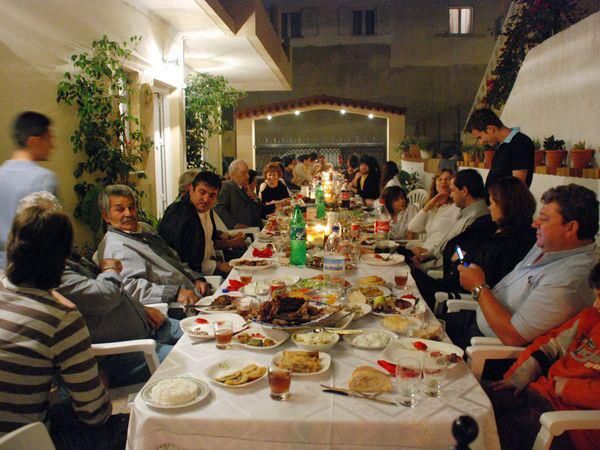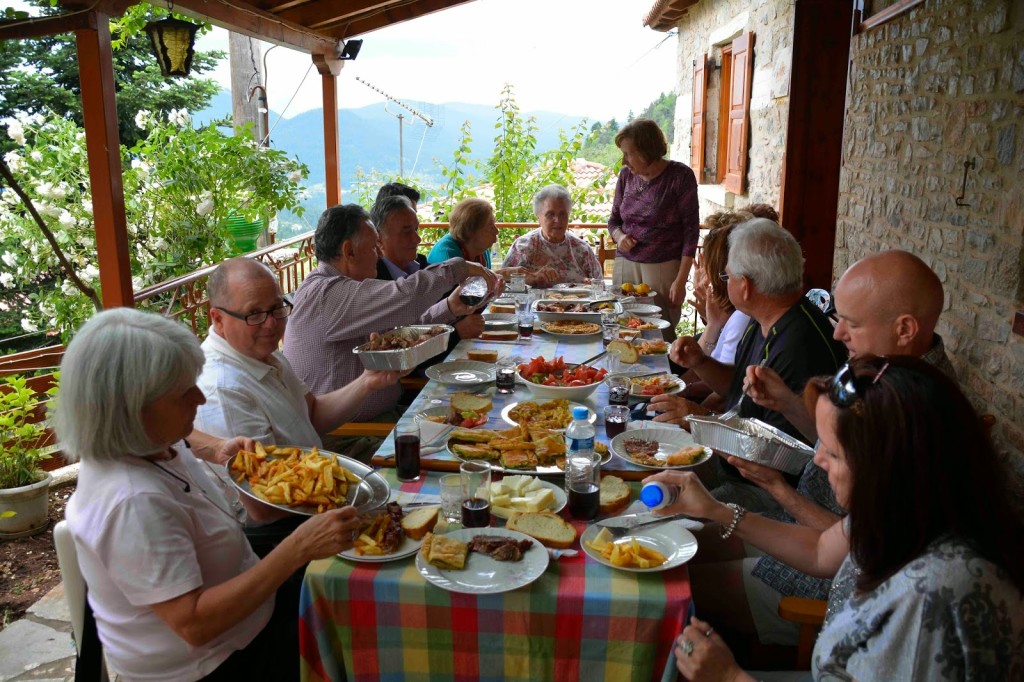Xronia Polla! Happy Name Day! Vα χαιρεσαι τη γιορτη σου! However you may say it, we all know it. Name day celebrations are some of the most iconic events in the Greek calendar. The celebrations in Greece are performed the ‘Greek way’; Hundreds of family and friends, lamb on the spit, and Greek dancing.
Many Greeks who migrated to Australia brought these traditions with them. In some ways, they even ‘Australianised’ it. Lamb on the spit was partnered with sausage sizzles. Massive gatherings traditionally held at the yiayia and papou’s house became large-scale picnics by the beach. These traditions made name day celebrations in Australia feel unique, while holding on to the rich traditions of the motherland.
Yet, something has happened. A shift in the wind. Celebrations gone adrift. Name day’s aren’t being celebrated as often in Australia.

Now this may be simply a personal observation, but I don’t think it is. In fact, having spoken with multiple members of the Greek Australian community, there has been a communal agreeance that name day celebrations are ever slowly decreasing in significance. With a particular emphasis on ‘slowly’.
Cultural practices are never quick to vanish. The slowness, in fact, makes it go quicker. Unnoticed. When was the last time you attended a Tsiknopempti? Or wore a Martis bracelet during March? These were once iconic moments in the Greek calendar, yet now are mentioned and gone once the sentence is finished.
To those who may argue that COVID-19 restrictions have obviously led to the end of large-scale events this year, this trend had begun before the pandemic. When everybody carried out there day as normal. People would remember their friend or family’s name day and sent them a text or maybe even give them a call.

That’s where it ended. Somewhere along the way, Greeks in Australia have forgotten the importance of gathering together as a large family for the celebration of their namesake. And while Easter and Christmas celebrations still thrive, two ‘excuses’ for meeting up with family and friends isn’t the Greek way of living.
Sadly, I feel this has been coupled with the dying population of our parents and grandparents, the first Greek Australian migrants. The ones who would organise every Christmas, Easter, birthday and yes, name day.
I was named Peter after my pappou, Panagiotis. On August 15th, over a hundred people would turn up at my pappou’s house to celebrate Panagia, the Dormition of the Theotokos. One of the biggest name day celebrations on the Greek calendar. After his passing a few years ago, Panagia name day celebrations understandably stopped. Although, I haven’t been to any name day celebrations since his passing.

As previously mentioned, cultural celebrations die unnoticed and die slowly. Don’t let this have a similar fate.
As we recover from COVID-19 this year, next year look at your Greek calendars. Make a list of every name day in advance and plan something. Extravagance is sometimes confused as being the ‘Greek way’. It’s not. Family is. And family gatherings are key to maintaining the cultural heritage in Australia.
